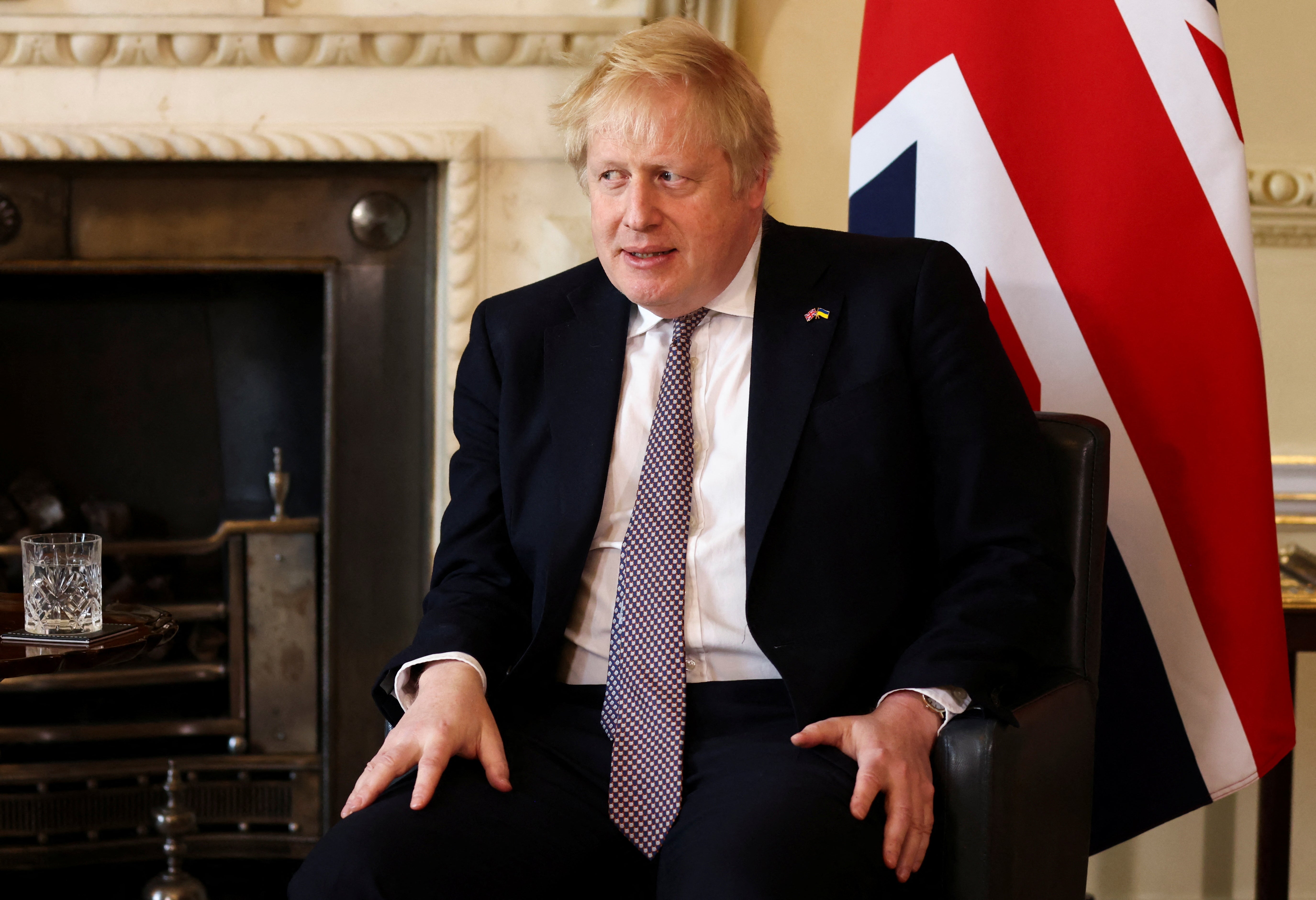Politicians should concentrate on the present – not the past
The ancient Greeks were adept at mythicising their heroes, this government – led by Boris Johnson – has a similar trait, argues Sean Russell


Imagine you are an ancient Greek of the Dark Age (1100-800BC). You look around and see the echoes of the incredible palaces of the even older Mycenaen or Minoan age looming above you, but your own civilisation is nowhere near that grand.
Don’t worry, your leaders say, these hard times are to be endured, this dip in living standards is nothing, the reason we lack the magnificence is not because we are failing, but simply because the age of those palaces was actually one of heroes, demigods. We should instead, admire them, in some cases worship them, draw strength from their memory to keep on enduring hardships. Sound familiar? It no doubt will to Boris Johnson and those around him.
Hesiod, an Ancient Greek poet, thought to be writing around 750-650BC, laid out the idea of an age of heroes in his Works and Days. He talks of the five ages of man: Gold, Silver, Bronze, Heroic and Iron. Each generation gets steadily worse, from the Gold age of man who live alongside the gods with “happy hearts/untouched by work and sorrow”, down to Hesiod’s own Iron age.
The one exception is the Heroic age, where there is an uplift in the plight of humankind. These were “more just and good / a godlike race of heroes, who are called / demi-gods”. Being the age before his own apparently abject one, it is no wonder that Iron Age (Dark Age) Greeks thought of heroes when looking at the magnificent ruins around them. But the truth is, the hero age was no such thing. The creation of a hero age was, perhaps, an act of collective imaginary nostalgia, it did not exist.
It is, in many ways, this same mechanism which our leaders draw on to this day to satisfy us in the face of multiple crises. Most notably, for the UK, it is the Second World War.
To argue whether the people who endured the Blitz or were sent abroad to fight and die were heroes is not my aim. It is the worship and mythologising of them and weaponisation of that memory that is wrong. Whenever this country faces a crisis, as we did with Covid-19, the heroes of the Blitz are evoked. “It’s not so bad that we are locked at home, just think about those in the Blitz, now they had real hardships.”
If the Blitz is framed as a moment of British resolve triumphing over Nazi hatred, then that becomes part of our national identity, an event we descended from. It is only natural that we view our current lives through that lens. But those people did what needed to be done at that time and often did not see themselves as heroes. The resolve, the “Blitz spirit”, was added after the fact, and this idea gets stronger and stronger the further we move away from the event, as it is re-interpreted to suit our contemporary and changing society.
Eighty-five-year-old pensioners who can’t afford to heat their homes will be told to keep calm and carry on. Families struggling to put food on the table will be told to have a stiff upper lip
Back to the Greeks. “Epic poetry was not so much concerned with accuracy as with telling an engaging story set in an ‘other’ time,” writes Cardiff University’s Dr James Whitley referring to how Iron Age Greece viewed its multiple pasts in his paper The Multiple Pasts of Archaic Greece.
By using the myth of our own more recent “age of heroes”, we believe we should endure struggles. The government called on the public to invoke the “Blitz spirit”, as Johnson used war-time language in his public addresses. The emphasis was then on the public, not the government – and the need for collective action. There is much less such talk now, with a rise in cases not producing the same rhetoric.
As we enter the cost-of-living crisis, the effects of which are yet to squeeze hardest, there will be calls to tighten our belts. Eighty-five-year-old pensioners who can’t afford to heat their homes will be told to keep calm and carry on. Families struggling to put food on the table will be told to have a stiff upper lip. Already Kwasi Kwarteng, the business secretary, has said the British people are willing to suffer “hardship” in the months ahead and endure sacrifices in “solidarity” with Ukraine following the invasion by Russia.
The truth is the cost-of-living crisis, while no doubt exacerbated by war in Ukraine, was already coming. But if we are called on to tough out this time as a passing phase – our leaders don’t have to think about more detailed plans of action. Others have suffered more and we should remember that. We should, but not at the expense of action now.
It is fundamentally human that we should look back, in fact this act has in many ways built our civilisations, nations and identities – for good and bad – but the weaponising of this memory and myth is worrying, especially in the so-called post-truth world where re-framing history has been seen numerous times in recent years – with Vladimir Putin’s “reasons” for invasion as the latest example.
To belittle someone’s situation because someone had it “worse” in the past – intentionally or not – and to summon their memory in political discourse is simply a means to distract away from real societal and governmental failings.




Join our commenting forum
Join thought-provoking conversations, follow other Independent readers and see their replies
Comments